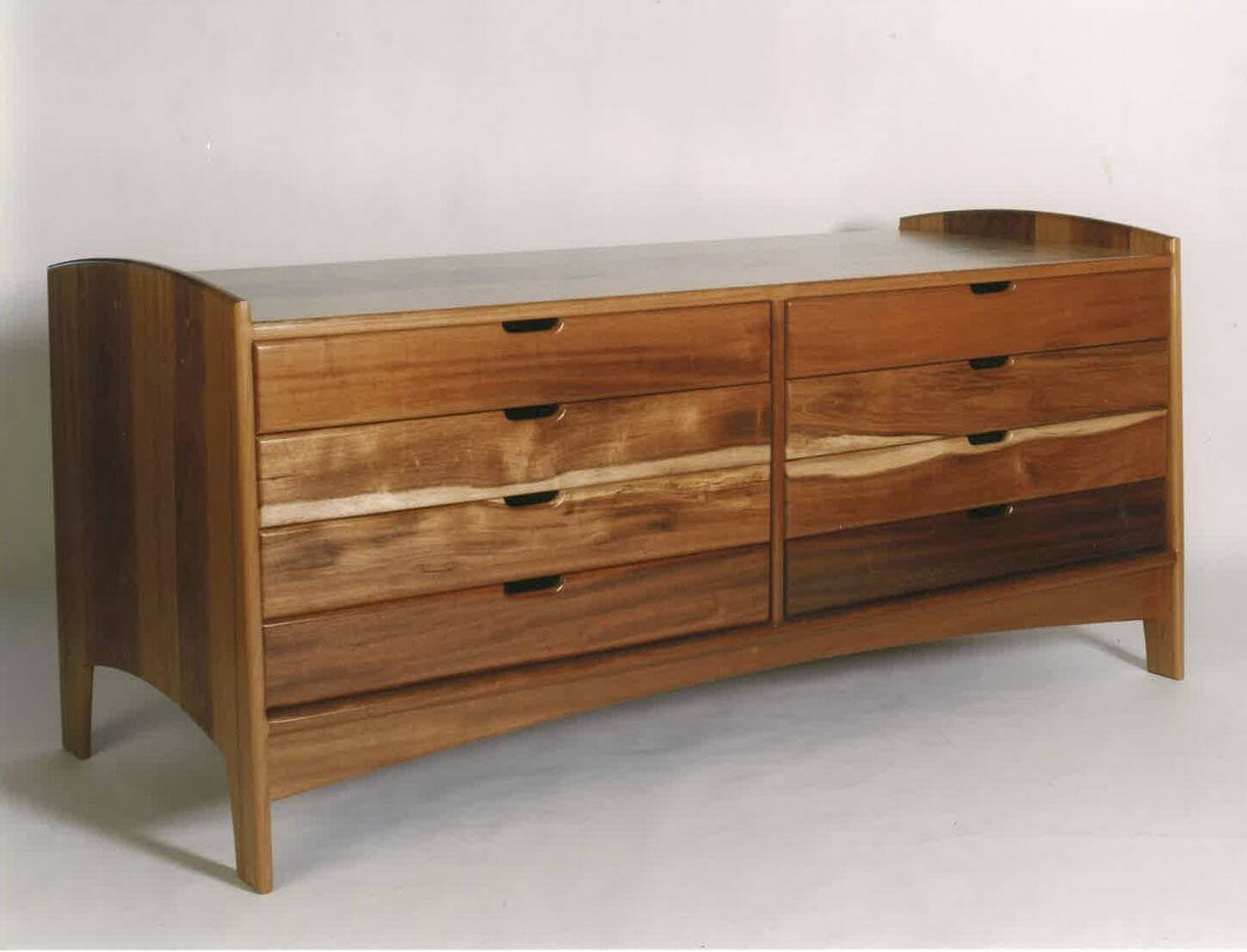If you ask John Steiner about his life’s work, he might point to the 11 years he spent SCUBA diving for a local salmon farm or how work is really just a means to his lifelong love of sports and the water.
His work, on the other hand, tells a different story: after Steiner hung up his diving gear, his bespoke furniture will be around for generations.
Steiner is a Bainbridge Island-based woodworker whose custom designs appear in the halls of artists and citizens alike. His business, run out of a shop in Manzanita, is turning 50 this year — but he’s not going anywhere.
“I like to build things that are functional and useful,” said Steiner, surrounded by planks of wood in his workshop. “You hope you’re building it to last lifetimes.”
Steiner’s work is deceptively understated. He uses simple silhouettes reminiscent of mid-century modern design, but by drawing out the unique grain of each panel of wood, the piece comes alive. His style is warm and functional; many works of his are a dark-honeydark honeycolor with a signature blonde highlight made of sapwood, and each uses high-quality hardware, which accents the buttery wood with durability.
A few of the works he is most proud of — a dresser once owned by the co-founder of Pixar that now stands in the Bainbridge Island Museum of Art, a set of six observation tables created for BIMA, and the front door for a BI client — all exemplify this style.
Functional art has driven the majority of Steiner’s artistic career, he said, recalling a brief stint throwing pottery in the early 1970s — when artisan ceramics were so popular, he was “selling everything he could throw.” In that time, he moved to BI from the mainland and became a maintenance diver for the salmon farm Global Aqua. Eventually, he came around to woodworking full-time.
His first materials, four truckloads of wood salvaged from a log boom and 6,000 board feet of an unusual tropical wood called merbau laid the groundwork for his furniture business. “I’m waiting for a special job for those merbau boards,” he said.
Steiner’s years of experience include occasionally designing kitchens; his work tends to be informed by creature comforts. Clients comment that he’s thought of everything — including the experience of the occasional plumber who may need to get under the sink.
“A kitchen is like a shop. In order to function very well, they need triangulation,” he said. “I’ll go over every foot of a kitchen with a client […] For example, I always suggest a tall skinny drawer for cooking oils. They always love that.”
Titans of the industry and the innovation of 20th-century home architects steered Steiner toward functional and beautiful interiors. None affected his artistic philosophy as much as Buckminster Fuller, the inventor of the domestic geodesic dome. “Bucky’s work is all about making a contribution to the world, and making the world a better place through invention,” Steiner said. “I wanted to get into woodworking to make something built to last.”
Despite over 50 years as a professional furniture designer, Steiner still hesitates to call himself an artist. “A lot of people say, ‘Oh, you make furniture, you’re an artist.’ I’d invite them to come on down to the shop and see how much ‘art’ goes on,” Steiner said. “Most of all, it’s dirty and dangerous.”



